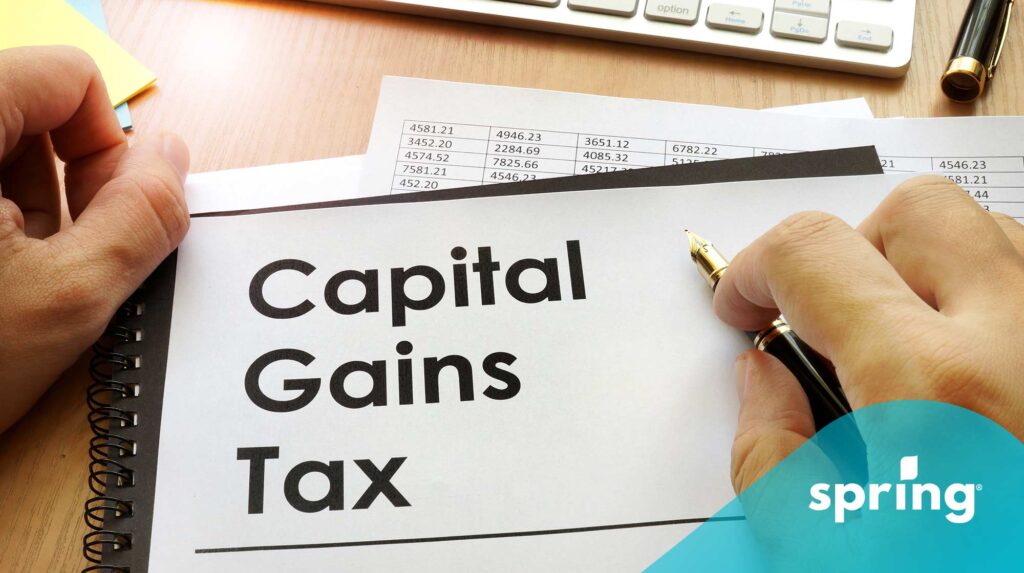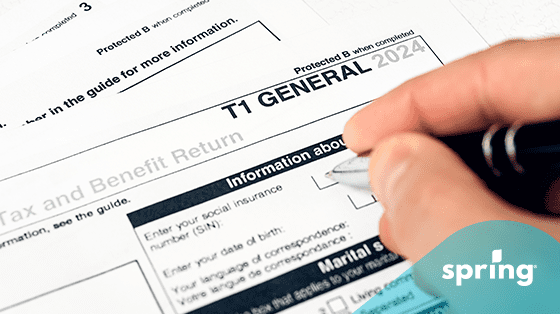When you’re employed, you’ll notice that amounts are taken out of every paycheck in order to contribute to CPP. These amounts contribute to what you’ll end up receiving when you retire. These amounts will determine how much you receive when you retire, as well as what your annual earnings were and how many years you worked in Canada.
2026 Canadian Pension Payment Dates
While the CPP payment amounts are usually sent out on the third last business day of every month, they can vary slightly due to statutory holidays and weekends. Here are the CPP payment dates for 2026.
| Payment Month | Payment Date |
| January | January 28 |
| February | February 25 |
| March | March 27 |
| April | April 28 |
| May | May 27 |
| June | June 26 |
| July | July 29 |
| August | August 27 |
| September | September 25 |
| October | October 28 |
| November | November 26 |
| December | December 22 |
If you receive your CPP retirement pension payments through direct deposit, then you should receive your CPP payments in your bank account on these dates. If you choose to receive your payments via cheque, they will be sent to you within the last 3 business days of the month. It can take up to 10 business days to receive your cheque from the date that it’s mailed.
How to Get CPP Benefits
In order to get CPP benefits in Canada, you have to apply and have a social insurance number. That said, how you apply is based on your individual circumstances. Most who are applying for regular benefits can complete the application process online or by using a paper application and send in the required documents (like your birth certificate). In some cases, though, you may be required to apply with a paper application. These situations include:
- Living outside of Canada
- Receiving a children’s benefit between the ages of 18 and 25, which wasn’t paid directly to you
- Having a trustee or a power of attorney that manages your CPP account
- Receiving survivors’ pensions through an International Social Security Agreement
- Receiving or denied children’s benefits under 18, and didn’t receive benefits after 18
- Receiving CPP disability that stopped before 65 or was denied CPP disability
Once your application form has been received, it can take up to 120 days before you receive a response from the Canadian government with your application status. This response will be received via mail. If the application wasn’t fully completed, it could take longer. You can also check your application status through your MSCA account (My Service Canada Account). Once this process is completed and you’ve been approved, you should start automatically receiving payments.
Amounts You Can Receive from CPP
As we mentioned above, the amounts that you receive from CPP vary. However, there are maximum amounts that you’re unable to go over. If you retire at the age of 65, then the maximum CPP payment that you can receive monthly is $1,507.75. That said, the average CPP payment received by CPP recipients last year was $803.76.
In order to receive full CPP benefits, you have to contribute the maximum amount every year for a minimum of 40 years. This amount is referred to as the Yearly Maximum Pensionable Earnings and affects your contribution rate. This amount is different every year, but for 2025, the amount is $71,300. If you’re unsure if you’ll receive the full amount, you can log into your My Service Canada Account, and you’ll be able to see an estimate of what your payment will be.
CPP Eligibility Requirements
Part of retirement planning is understanding the eligibility requirements for CPP, and the fact is, there aren’t many. The only requirements are that you are at least 60 years of age and you have made at least one contribution to CPP. While this won’t get you full benefits, you will be approved for some amount. Keep in mind that these valid contributions can be from working yourself or from credits received from a spouse after divorce or separation.
CPP Calculations
When it comes to how much CPP you will receive, your contribution history matters. However, when the calculations are being made, in order to help ensure you made sufficient contributions, your lowest earnings for up to 8 years are excluded from your contribution history. They also have a child-rearing provision, which will include excluding months you were at home providing child care for children under the age of 7.
Right now, there is also the CPP enhancement, which is working on increasing benefits for all who receive CPP. It aims to go from replacing 25% of your income to 33% which can be beneficial for many people. However, this is an initiative that is being introduced over time and will just affect your increases in payment amounts.
.
When to Start Your CPP Benefits
When it comes to CPP retirement benefits, it’s more than just your maximum pensionable earnings that make a difference regarding how much you can receive. Your maximum monthly CPP amounts are also determined by when you choose to start collecting. While the standard age to start these benefits is 65, you’re actually able to start collecting when you turn 60.
For many, especially those who retire early, collecting CPP benefit payments starts when they turn 60. While this does result in lower payments, you still end up receiving the same amount; you can just receive the funds for longer. Essentially, the payments are reduced by 0.6% per month before you turn 65. This works out to 7.2% per year. This ends up being a total of 36% if you start at 65 instead of 60.
The maximum age that you can claim your benefits is 70. For every month after you turn 65, the payments end up going up by 0.7%. This ends up being a total of 8.4% per year and 42% by the time you reach 70 years of age.
However, you may not know that you can also request retroactive payments. This means that if you apply after the age of 65, you can choose to get retroactive payments for a maximum of 11 months. However, you can receive retroactivity for time periods past the month after your 65th birthday.
Before you decide when you should start your payments, it’s best to consider when you’re retiring, how much retirement savings you have, and the rest of your personal circumstances. This answer is different for everyone.
What Happens if You Don’t Apply for CPP?
If you haven’t applied for CPP benefits by the time you turn 70, you’re not going to be automatically enrolled. In fact, you’re going to miss out on payments that you could have received. While you used to be enrolled automatically when you reached 70, now, if you don’t apply, you don’t receive benefits. If you never apply, then you will not receive the benefits that you’re entitled to. If you apply and are denied, the Social Security Tribunal of Canada may be able to help.
Other CPP Benefits
Along with your CPP benefits, there are other retirement benefits that you could qualify for. That said, just like with CPP benefits, you will have to apply. Here’s a look at what they are.
CPP Post-Retirement Benefit
The CPP Post-Retirement Benefit is for those who continue working under the age of 70 while receiving CPP benefits, but choose to continue making contributions. The CPP contributions you make increase your retirement income and are added to your post-retirement benefit.
This works because every year you contribute to the post-retirement benefit, you get an additional one. This is then automatically paid the following year, and you will continue to receive it for the rest of your life. When it comes to paying these benefits, though, you can opt out once you turn 65. Once you turn 70, your contributions will automatically stop.
CPP Disability Pension
CPP disability is given to those who qualify as disabled CPP contributors before the age of 65. It’s a monthly payment provided by the government of Canada that you can receive if you’re unable to work due to a disability. However, once you turn 65, your CPP disability is converted to regular CPP benefits.
CPP Post-Retirement Disability Benefit
The CPP Post-Retirement Disability Benefit is another benefit that you must apply for. You meet the eligibility criteria for this benefit if you have a severe and prolonged disability, are under 65 and are receiving CPP benefits. You also have to have made enough valid contributions. Once you’re considered to be an eligible candidate for the benefit, you’ll start receiving it along with your CPP payments until you turn 65.
CPP Disability Children’s Benefit
The way this benefit works is it’s given to dependent children of someone who receives a CPP disability benefit. The child must be under the age of 18. They can still receive payments between the ages of 18 and 25 as long as they’re in school full-time.
CPP Survivor’s Pension
The CPP Survivor’s Pension, also referred to as survivor benefits, is for those who are the surviving spouse or common-law partner of deceased CPP contributors. The amount you receive is based on what they contributed as well as what you earn. In order to receive this benefit, you have to apply for it yourself.
CPP Survivor’s Children’s Benefit
This benefit is provided to children under 18 of a deceased CPP contributor. That said, you could receive the benefit up to the age of 25 as long as you’re a full-time student.
CPP Death Benefit
The CPP death benefit works a little bit differently. When a CPP contributor dies, a one-time payment is then made to or on behalf of the estate.
Benefit Amounts
We’ve already discussed what you can earn from CPP, but what can you earn from the other benefits? Well, let’s take a look.
| CPP Benefit | Maximum Amount You Can Receive |
| CPP Post-Retirement Benefit | $54.69 |
| CPP Disability Pension | $1,741.20 |
| CPP Post-Retirement Disability Benefit | $610.46 |
| CPP Disability Children’s Benefit | $307.81 |
| CPP Survivor’s Pension | $805.54 under 65, $904.59 over 65 |
| CPP Survivor’s Children’s Benefit | $307.81 |
| CPP Death Benefit | $2,500 |
CPP Payment Increases
Usually, if CPP increases happen, they happen at the beginning of the year. The amount that your payments will increase is based on the rate of inflation as well as inflation risk. The increase occurred as of December 31, 2025, for 2026.
How CPP Income Works for your Taxes
Like many other forms of retirement income, CPP is considered to be taxable income, meaning that it is fully taxable. The monthly benefits are shown on your CPP statement, and the total is added. It will be combined with any other retirement income that you receive. However, it’s important to note that government benefits aren’t taxed before you receive the payments; you have to pay the tax when you file your annual income tax return.
If you don’t like the fact that your taxes aren’t automatically taken off, then you can actually request to have this done. That said, the amount removed by the CRA may not be accurate because it’s based on your annual income. You may have more annual income than just your government pension benefits, so then you could still end up owing money.
Other Income You Can Receive During Retirement
Even if you receive the maximum payment because you’ve made maximum contributions, your average annual earnings may not be enough to get you through retirement. This is why many have personal savings that they use to increase their average annual earnings. Plus, since CPP is a benefit that everyone qualifies for, you won’t lose benefits by having other forms of retirement income.
Some Canadian workers have a pension through their work, which includes employee contributions as well as those from the employer. This type of retirement income is also considered to be a pension and can really increase your overall income. For many, this also means that they can retire early. Others have personal savings that they use to supplement their income.
For those who don’t have any other funds to supplement their retirement income and only get Old Age Security and Canada Pension Plan (CPP), there’s the Guaranteed Income Supplement. As long as you have an income below the maximum income contributions, then you can get this amount. This can allow you to get anywhere between $660 and $1,900 per month.
Final Thoughts
In Canada, pretty much everyone qualifies for CPP. This means that as long as you meet the qualifications, you can start receiving benefits as early as age 60. However, you can also choose to wait until you’re 70 in order to receive your pension benefits. That said, your contributions will determine how much you can get every month.
On top of your CPP benefits, you can still receive any other pension income you have, use your personal savings, and receive any other government benefits that you may qualify for. As long as you qualify, your annual income doesn’t matter; it will only affect your marginal tax rate, which will determine how much tax you pay every year.









